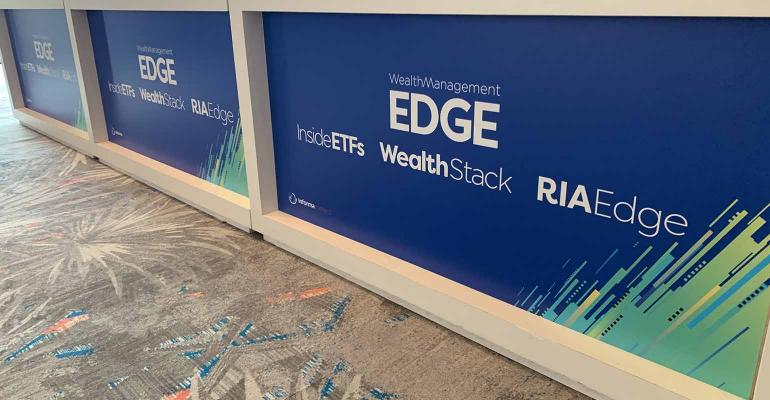The good and bad news about embedding the RPA Aggregator Roundtable & Think Tank at WealthManagement EDGE, which brought together leading wealth managers, ETF providers and wealthtech firms, was that I got exposure to ideas I never hear at 401(k) conferences. Unfortunately, I was only able to get a small sampling because I had to cover the roundtable.
The RPA industry is eager to learn about wealthtech, especially artificial intelligence, and financial planning techniques being developed by the wealth management industry. The trick is figuring out how to translate them onto clunky record keeping systems for investors who cannot afford real personalized advice. But that’s better than having no idea about what to do at all.
So even though I was only able to attend a few sessions, there were incredible pearls of wisdom worth sharing applicable for RPAs:
- Clients expect the same experience they get from Apple, Netflix and Venmo from their advisors with 24/7/365 access
- Do not hire an advisor that does not use an advisor
- Trust comes from transparency
- Trust takes a long time to build and a moment to lose or, put another way, character is more easily kept than recovered
- When one advisor loses trust, we all suffer—true for providers and money managers
- Digital interaction with some human interaction is more acceptable than ever
- Geography and time are no longer an asset
- “Land & Expand”—hook a client anyway you can and expand the relationship
- You should not expect to be paid on every piece of advice or counsel provided
- Removing complexity and solving for uncertainty
- To be able to say “We have no idea what’s going to happen” and still land a client because every financial plan is inherently wrong from the start
- Hire “ambassadors” or financial coaches uncovering problems and goals before clients/prospects meet with an advisor
- Advisors are more like life counselors than investment nerds
NYU professor and economist Nouriel Roubini was pessimistic about the economy with a hard landing (recession + high inflation) more likely than not—he totally eviscerated the value of cryptocurrency yet the sessions were packed and digital asset vendors made up one-third of the exhibitors. Go figure.
I wandered through the exhibit hall marveling at all the wealthtech firms understanding or recognizing very few. At the aggregator roundtable concluding lunch, two tech luminaries and one start-up shared their vision of the future.
Lori Hardwick, chairperson at Vestwell and a former Envestnet president, shared that wealthtech firms first focused on the home office, then shifted to advisors and are now looking at the consumer with the embedded financial industry the talk at WealthMaagement EDGE. How to build tech that can engage consumers while streamlining back-office business processes.
Wealth tech industry guru Tim Welsh from Nexus Strategy shared insights about AdvicePay, co-founded by Michael Kitces, that allows investors to pay a monthly fee for financial planning by credit card without considered to have custody of the assets. Tim said that 90% of people do not have an investment account—most likely have a DC account though.
Finally, Ben Pitts from Tifin, which has raised over $200 million in the past three years focused on use of data and AI, discussed their intuitive financial planning tool that evolves on the fly as more data is gathered, which Ben called a light version of eMoney. They also leverage 145 publishers to inform and engage clients and prospects using their AI software to craft and refine messages.
If you know most of the people at the conferences you frequent and the subjects corroborate what you are doing, you are in danger of being stuck in the 401(k) echo chamber suffering from confirmation bias solving new problems with old solutions which, unfortunately, will result in the same outcomes.
Fred Barstein is founder and CEO of TRAU, TPSU and 401kTV.




